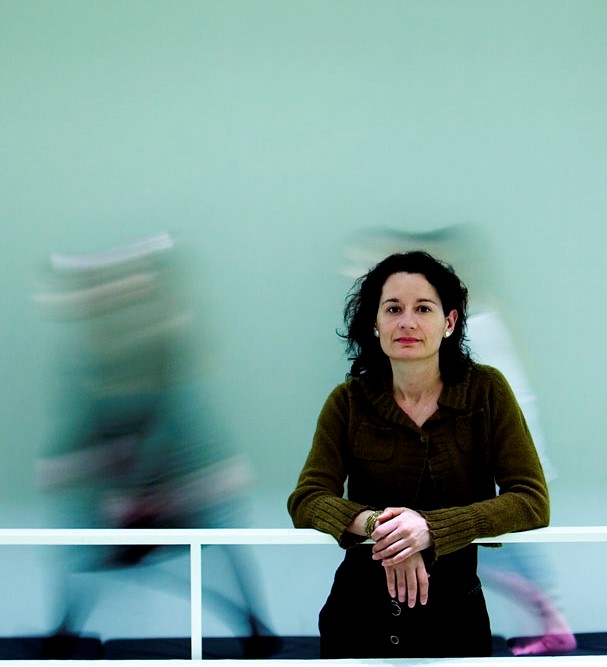Get strategic and take your grant applications to the next level
Over the years, Professor Charlotte Ulrikka Rask has written a lot of grant applications, and she’s been awarded funding a number of times. But an advisory process with the Research Support Office in connection with a major application has helped her rethink her approach to grant applications, including how to communicate her research idea clearly and convincingly. What’s more, her research unit now has a written application strategy which provides a common framework for the process. This has put wind in their sails, she says.

“It was a lot more fun to write this application. Before, it was sort of putting old wine in new bottles. But with help from Ulrik from the Research Support Office, we’ve described our research idea and field at a higher level. It was an intensive process, and Ulrik asked a lot of questions about our overall idea and vision, gave us critical and constructive feedback on what we wrote and so on.
It was demanding, and as a mature researcher, you have to be able to handle critique and stay a little open. After all, I say some of the same things to my students – so you have to be able to take it as well as dish it out,” she laughs. According to Charlotte Ulrikka Rask, as a researcher you have to be objective – if you can’t sell your idea and get funding, then you have to do something differently. “We couldn’t understand that we hadn’t gotten money for these fantastic projects. But during the process, it became clear that we needed to restructure the whole thing and present it from a different angle to make our vision and goal clearer. We’ve gotten more synergy between what we have done and what we want to do. Through Ulrik’s questions, we suddenly noticed something we hadn’t seen ourselves.”
No more island-hopping
Charlotte Ulrikka describes her previous approach to external funding as a kind of ‘from island to island’ strategy: There wasn’t always cohesion between the applications, and they were often written ad hoc, which meant that the application process could be extremely high-pressure. This is why her research group accepted the offer of a follow-up meeting with the Research Support Office, which assisted in the development of an annual planning cycle, so that they no longer think from island to island, but instead work under an overall plan and vision. This means that they now primarily focus on applying for large grants for more PhD projects, which then go on to become part of a network – and the common goal (and vision) for the research group. “It gives a good awareness to have this annual planning cycle. And that’s good, because it takes more time to prepare and write large applications, among other things because I also have to establish collaborations and so on. But it’s more fun to think big, ambitiously, and not to hide your light under bushel,” says Professor Charlotte Ulrikka Rask.
Positive results from service check of funding strategies
The Research Support Office’s HEALTH team has trialled a new approach to developing fundraising strategies for individual researchers and units, among others Charlotte Ulrikka Rask. The results of the trial have been positive, and the Research Support Office is now testing the same approach elsewhere at AU.
The basic concept is to perform informal ‘service checks’ on the researcher’s or unit’s fundraising activities, both in order to clarify individual needs and to learn about existing practices. However, the primary objective is to help researchers formulate what they want to achieve even more precisely. While it might seem that link between what the researcher wants to achieve and the formulation of the applications’ objectives and perspective should be obvious, this is not always the case. For this reason, the adviser plays a more active part in the phase of project development which concerns the non-scientific aspects of the application.
Questions lead the way to the strategy
Questions like ‘What determines where, when and for what project you apply for external research funding?’ open up a new kind of dialogue between researcher and research adviser. Such dialogue often leads researchers to an understanding of why it is a good idea to invest some time in planning and preparing the application process. There is rarely time and energy for this kind of dialogue during the hectic application phase, when the focus is on completing the application.
A better structure and long-term planning pays off in increased efficiency, a better match and more focussed applications. The strategy document is not the most important outcome: the dialogue itself gives researchers the skills to organise their application process differently, including a more strategic approach to the match between the foundations and the project development aspect.
What’s involved in a service check?
A funding strategy service check includes: the researcher’s application history, funding history, bibliometrics, ‘quality check’ of previous applications, formulation of desired outcomes, prioritisation of projects. General advice and information on the Research Support Office’s services and courses, project administration and the like.
Contact the Research Support Office for more information.